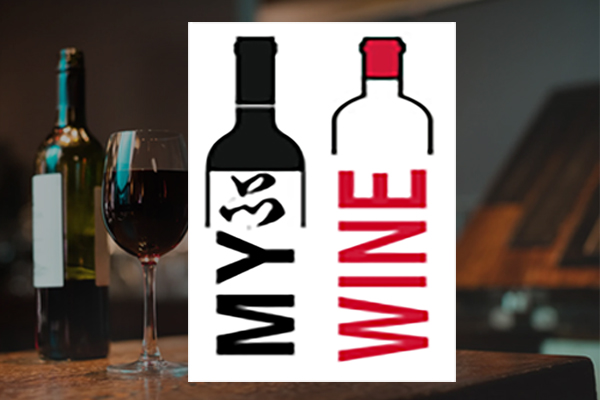Overview
In literature, wine often connotes happiness and friendship. It is also a symbol of transformation, such as the fermentation process that symbolizes sustenance and life.
The history of winemaking stretches over millennia, and the science of wine and winemaking is known as oenology. GIS (Geographic Information Systems) can provide beneficial information about grape cultivation. For example, climate and weather help determine how quickly wine grapes grow, the flavor and aroma characteristics they develop, and how well they can be transformed into different types of wine.
Understanding the technology behind the winemaking process is equally important in determining the final quality of the wines. This includes selecting the right timing for harvest, fruit selection, fermentation into alcohol and carbon dioxide (CO2), along with other by-products that contribute to the sensory characteristics of the wine, maceration, extraction, and oak barrel aging. All these factors contribute to the quality of wine, ranging from exceptional to insipid.
Wine should be an expression of time (vintage). The best way to guarantee a good wine is to opt for a well-known grape varietal from a famous wine region (vineyard) and a vintner who produces excellent wines. We can also appreciate wine through the complexity of its numerous layers, which release flavors that appear on the palate one after the other over time. The balance of the five components—acidity, tannins, sweetness, alcohol, and fruit—is crucial. The appearance and taste of wine are equally important, with the intensity and length of finish indicating the wine's quality. The better the wine, the longer the flavor finish will last on our palate.
Wine appreciation is a cultural art form that goes beyond the simple act of tasting. It represents a poetic way of life and an attitude of understanding. Those who appreciate wine are individuals who appreciate the finer aspects of life. Wine, like life, is an exploration. Each glass is a journey, a destination that we eagerly anticipate and patiently wait for, as we seek to understand and appreciate its essence.
Join our wine appreciation course to delve into the captivating world of wine culture and gain a deeper understanding of its history, production, and quality. Develop your sensory abilities and become an expert in the art of wine appreciation. 葡萄酒与水果有着令人兴奋的关系,因为它创造了最优质的葡萄酒。但是,正如我们所了解的,葡萄酒也会随着年龄的增长而改善。在文学作品中,酒往往象征着幸福和友谊。它也是转型的象征,例如象征着寄托和生命的发酵过程。
葡萄酒的历史绵延数千年,学习葡萄酒和酿酒的科学被称为葡萄酒学。为了更好地理解葡萄酒,我们需要了解葡萄酒标签的阅读,葡萄酒的历史、品尝、嗅觉、视觉和质量的艺术。通过学习这些知识,我们可以提升我们的品味,并欣赏葡萄酒的复杂性。
课程主题充满趣味性和吸引力:葡萄酒与水果的激动人心的关系,因为它创造了最优质的葡萄酒。同时,我们也了解到葡萄酒随着年龄的增长而变得更好。在文学中,葡萄酒常常象征着幸福和友谊。它也是一种转变的象征,例如发酵过程象征着滋养和生命。
葡萄酒的历史悠久,葡萄酒和酿酒学被称为葡萄酒学。地理信息系统(GIS)可以提供关于葡萄种植的有益信息,例如气候和天气如何影响葡萄生长的速度、风味、香气和多汁度,以及如何将这些葡萄转化为不同类型的葡萄酒。
了解葡萄酒酿造过程中的技术同样重要,它对最终葡萄酒的质量起着决定性作用。从选择适当的收获时间、水果的选择、发酵为酒精和二氧化碳(CO2),以及其他产生葡萄酒感官特征的副产品,再到浸渍、提取和橡木桶陈酿,所有这些因素都对葡萄酒的品质产生影响,从卓越到平淡不一。
葡萄酒应该是时间的表达,最好的方法是选择知名葡萄酒产区的著名葡萄品种和出色的酿酒师。通过品味葡萄酒的复杂层次,我们可以欣赏到它在口腔中逐渐展现的各种味道;酸度、单宁、甜度、酒精度和果味的平衡,以及葡萄酒的外观和味道同样重要,还应该具有持久的口感和余味,以显示葡萄酒的质量。
学习葡萄酒的好处不仅体现在提升品味,还能够培养对艺术的欣赏力,发现葡萄酒与水果之间的奇妙联系。通过这门课程,您将能够更好地了解葡萄酒的历史、制作过程和品质,培养您的感官能力,并成为一位热爱葡萄酒的专家。
欢迎您加入我们的品酒艺术课程,一起探索葡萄酒的魅力和多样性!
Course Content
Duration: 10 hours
Learning Approach: Experiential Learning, Cooperative Learning, and Reflection
Cohort: Negotiable
Join us for a comprehensive 10-hour wine course that combines experiential learning, cooperative learning, and reflective practices. This unique approach ensures a dynamic and engaging learning experience, allowing participants to fully immerse themselves in the world of wine.
Through hands-on activities, group discussions, and guided reflections, participants will develop a deep understanding of wine appreciation, including the art of tasting, smelling, and visually examining wines. They will also explore the historical and cultural significance of wine, gaining insights into its transformative nature.
Our flexible cohort arrangement allows for negotiation to accommodate your schedule and preferences. Whether you're a wine enthusiast looking to enhance your knowledge or a professional in the hospitality industry seeking to expand your expertise, this course is designed to cater to your specific learning needs.
Don't miss out on this opportunity to embark on a captivating journey through the fascinating world of wine. Register now to secure your spot in this enriching course.
For more information and registration, please contact us.
Learning Outcome
Learning Outcome:
Explain the classifications of wines based on types of grape varieties, provenance and year of harvest
Identify the different types of information provided on wine label
Perform the basic techniques of sight, smell and taste sensory analysis
Set preliminary criteria to evaluate quality of wines
Perform the techniques of presenting, opening, decanting, and serving of wines
Identify the different types of drinkware and serving temperatures
Set the guidelines for food matching with wine
Explain the basic wine fermentation process
学习成果:
□ 根据葡萄品种、产地和收获年份解释葡萄酒的分类
□ 识别酒标上提供的不同类型的信息
□ 进行视觉、嗅觉和味觉分析的基本技术
□ 制定评估葡萄酒质量的初步标准
□ 执行葡萄酒的呈递、开瓶、醒酒和上菜的技巧
□ 识别不同类型的饮料器皿和服务温度
□ 制定食物与葡萄酒搭配的准则
□ 讲解基本的葡萄酒发酵过程

